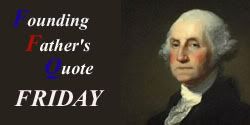“But God in mercy to us fought our battle for us and altho’ we were but few and so were suffered to be defeated by them, we were preserved in a most wonderful manner far beyond expectation, to admiration, for out of our regiment there was about 37 killed, 4 or 5 taken captive, and about 47 wounded….The above quote was contained in a letter written by Peter Brown to his mother on June 28,
If we should be called into action again I hope to have courage and strength to act my part valiantly in defence of our liberties and our country, trusting in him who hath yet kept me and hath covered my head in the day of battle….”
 1775 from Cambridge, Massachusetts. The event described involved the battle of Breed’s Hill – better known as the Battle of Bunker Hill, outside of Boston on June 17, 1775. Outnumbered, ill-trained against the legendary British army, the colonials made their stand, lost the day, but were willing to go on. While I found the letter in a book titled The Spirit of Seventy-Six, edited by Henry Steele Commager and Richard B. Morris, it’s also online at the Massachusetts Historical Society’s Bunker Hill Exhibit and is referenced many other places on the Internet.
1775 from Cambridge, Massachusetts. The event described involved the battle of Breed’s Hill – better known as the Battle of Bunker Hill, outside of Boston on June 17, 1775. Outnumbered, ill-trained against the legendary British army, the colonials made their stand, lost the day, but were willing to go on. While I found the letter in a book titled The Spirit of Seventy-Six, edited by Henry Steele Commager and Richard B. Morris, it’s also online at the Massachusetts Historical Society’s Bunker Hill Exhibit and is referenced many other places on the Internet.Peter Brown would ‘fight valiantly’ throughout the Revolution, and would pass away in 1892, ‘honored among his countrymen’.
When I read the quote, I wondered if Brown could be considered as a ‘founding father’. He was, after all, not a political statesman, he didn’t sign the Declaration of Independence or Constitution… he wasn’t even an officer. He was a corporal in the loosely organized Massachusetts militia.
Founding fathers is a term this is often used, and it is assumed that everyone knows the meaning of it. The results of searching the Internet to find out exactly what the definition of a ‘founding father’ was?
The general consensus was that a Founding Father was: 1. A member of the convention that drafted the U.S. Constitution in 1787; 2. a man who founds or establishes something, such as George Washington was the father of his country. Wikipedia definition: The Founding Fathers of the United States were the political leaders who signed the Declaration of Independence or otherwise participated in the American Revolution as leaders of the Patriots, or who participated in drafting the United States Constitution eleven years later.
I think the Wikipedia explanation – while more comprehensive – is more accurate. Peter Brown was a common soldier who stood up for liberty and was willing to serve, suffer, and run the risk of injury or death for his service.
How willing are we today willing to stand for liberty?
Essential Question: How do we insure that students understand the terminology teachers are using?
Founding Fathers Quote Friday is hosted at Meet the Founders blog.



1 comment:
Great post and great quote! Thanks so much for sharing!
How grateful we can be for these men who valiantly stood in the gap, and did their duty.
While Brown may not have been a framer, he was definitely a patriot, and even his part, though seemingly small, was of prime importance. If nobody did the gritty work, like fighting, how would we have achieved liberty at all?
Thanks for participating. I posted my FFQF post.
Happy FFQF!
Post a Comment